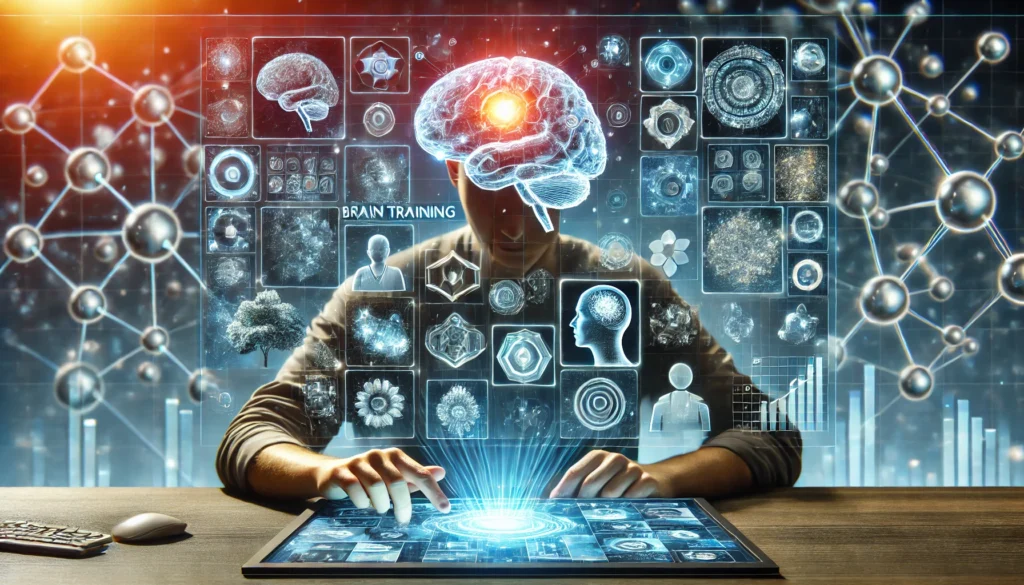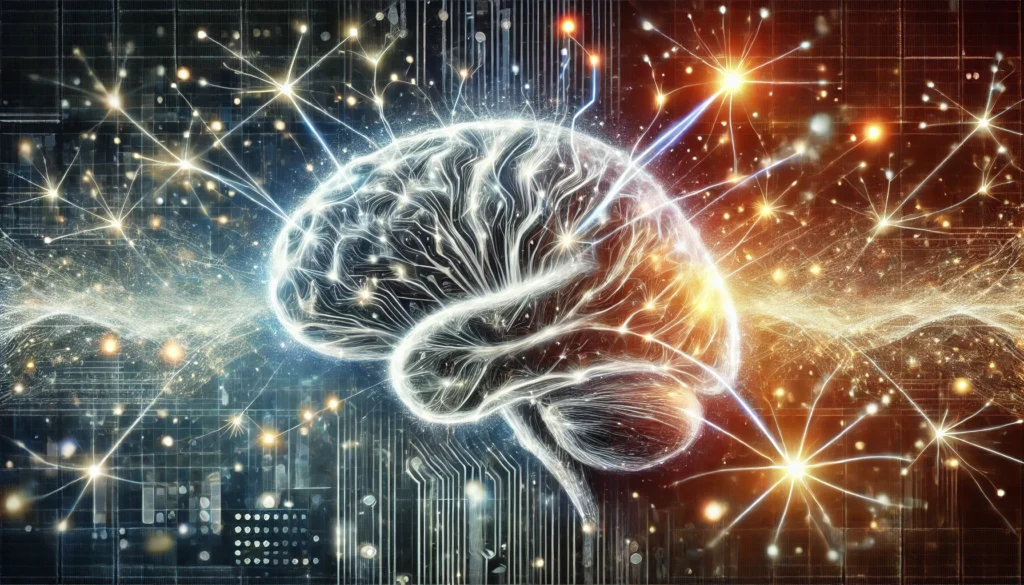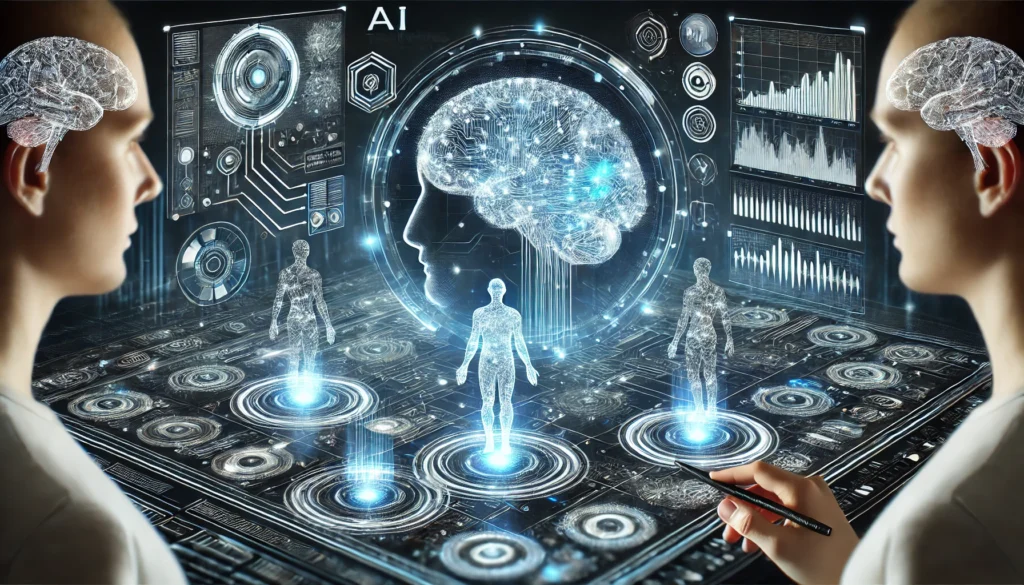The quest for cognitive enhancement has captured human imagination since time immemorial. With the advent of modern technology, brain training programs have emerged as a promising avenue to boost mental acuity and cognitive health. This article delves into the best brain training programs available today, exploring their historical roots, current applications, and future potential.
You may also like: Boost Your Mind: Top Brain Games
The Evolution of Brain Training
Brain training is not a novel concept. Ancient civilizations employed various methods, from meditation to complex games, to enhance mental faculties. In contemporary times, scientific research has underscored the brain’s neuroplasticity—the ability to reorganize itself by forming new neural connections throughout life. This discovery has laid the groundwork for modern brain training programs, which aim to harness this plasticity to improve cognitive functions such as memory, attention, and problem-solving.
Ancient Techniques for Cognitive Enhancement
Throughout history, various cultures have devised unique methods to sharpen the mind. The ancient Greeks, for example, engaged in philosophical debates and mathematical puzzles, which were believed to stimulate critical thinking and reasoning skills. Similarly, Eastern traditions such as Zen meditation focused on mindfulness and concentration to enhance mental clarity. These early practices laid the foundation for understanding the importance of mental exercises in maintaining cognitive health.
The Rise of Neuroplasticity
The concept of neuroplasticity revolutionized our understanding of the brain’s capabilities. Previously thought to be a rigid organ, the brain is now recognized for its remarkable ability to adapt and change. This adaptability underscores the potential of brain training programs, as they can leverage neuroplasticity to target specific cognitive skills. Research has demonstrated that consistent mental challenges can lead to significant improvements in brain function, validating the efficacy of these programs.
Modern Brain Training Innovations
With advancements in technology, brain training has evolved into sophisticated platforms that offer personalized cognitive exercises. These programs utilize algorithms and data analytics to assess an individual’s cognitive strengths and weaknesses, providing tailored training regimens. Modern brain training incorporates gamification elements, making the exercises engaging and motivating for users. This convergence of science and technology has made brain training accessible to a wider audience, further popularizing its benefits.
The Science Behind Brain Training
At its core, brain training involves cognitive exercises designed to improve specific mental skills. These exercises often target areas like working memory, cognitive flexibility, and processing speed. By consistently challenging the brain, these programs can potentially stave off cognitive decline and enhance overall brain fitness.
Key Cognitive Skills Targeted
Brain training programs are designed to enhance various cognitive skills, each playing a crucial role in daily functioning. Working memory, for instance, is vital for tasks that require holding information temporarily, such as mental math or following complex instructions. Cognitive flexibility allows individuals to adapt to new situations and think creatively, while processing speed is essential for quick decision-making. By targeting these skills, brain training can lead to comprehensive cognitive enhancement.

The Debate on Efficacy
While many programs boast significant improvements in cognitive function, the scientific community remains divided on their efficacy. Some studies suggest that while participants may perform better on trained tasks, these gains do not always transfer to real-world applications. Critics argue that the improvements are limited to the exercises themselves, rather than leading to broader cognitive benefits. Despite this debate, the growing body of research continues to explore the potential of brain training in various contexts.
Translating Gains to Real-World Applications
For brain training to be truly effective, the skills developed through these exercises must translate into real-world improvements. This transferability is a key focus for researchers, who are investigating how specific training regimens can enhance everyday cognitive tasks. By refining the design and implementation of brain training programs, developers aim to create exercises that not only improve test scores but also enhance real-life cognitive performance.
Top Brain Training Programs and Platforms
When choosing a brain training program, consider one that offers a diverse range of exercises and tracks progress. Here are some of the leading platforms:
Lumosity
Lumosity is one of the pioneers in the brain training industry. It offers a suite of games designed by neuroscientists to challenge various cognitive abilities. Users receive personalized training regimens based on their performance and goals. Lumosity’s engaging interface and robust tracking features make it a popular choice for those looking to test their brain fitness.
Game Design and Cognitive Challenges
Lumosity’s games are crafted to target different cognitive domains, such as memory, attention, and problem-solving. Each game is designed to challenge users in a specific area, ensuring a comprehensive cognitive workout. The games are not only educational but also entertaining, which encourages consistent engagement and progress.
Personalized Training Regimens
One of Lumosity’s standout features is its ability to customize training based on individual needs. Users begin with a baseline assessment, which informs the program of their cognitive strengths and weaknesses. This personalized approach ensures that the exercises are tailored to challenge and improve specific areas, leading to more effective cognitive enhancement.
Tracking Progress and Achievements
Lumosity provides detailed feedback on user performance, allowing individuals to track their progress over time. The platform offers insights into areas of improvement and highlights achievements, motivating users to continue their cognitive training journey. This feature fosters a sense of accomplishment and encourages long-term commitment to brain fitness.
CogniFit
CogniFit provides scientifically validated cognitive assessments and training programs. It focuses on a wide array of cognitive skills, including attention, memory, and perception. The platform’s interactive games are designed to adapt to the user’s cognitive profile, providing a tailored training experience.
Comprehensive Cognitive Assessments
CogniFit begins with an in-depth cognitive assessment to determine each user’s unique cognitive profile. This initial evaluation identifies strengths and areas for improvement, guiding the development of a personalized training plan. The assessment ensures that users receive targeted exercises that address their specific cognitive needs.
Adaptive Training Experience
The platform’s interactive games adapt to the user’s performance, offering a dynamic training experience. As users progress, the difficulty of the exercises adjusts to maintain an optimal level of challenge. This adaptive approach keeps users engaged and ensures continuous cognitive growth.
Scientific Validation and Credibility
CogniFit is backed by extensive scientific research, enhancing its credibility as a brain training platform. The exercises are developed in collaboration with neuroscientists, ensuring that they are grounded in cognitive science. This focus on scientific validation makes CogniFit a reliable choice for individuals seeking evidence-based cognitive enhancement.
Elevate
Elevate aims to improve cognitive skills related to communication, such as reading comprehension, writing, and listening. Its training programs are personalized, evolving as the user progresses. Elevate’s sleek design and user-friendly interface make it an attractive option for those interested in honing their communication skills alongside traditional cognitive training.
Enhancing Communication Skills
Elevate’s unique focus on communication sets it apart from other brain training platforms. The program offers exercises that target reading comprehension, vocabulary, grammar, and listening skills, essential for effective communication. By improving these areas, users can enhance both their cognitive abilities and interpersonal effectiveness.
Personalized Learning Journey
Elevate tailors its training programs to the individual, ensuring that exercises evolve as users progress. The platform uses data analytics to adjust the difficulty and focus of the exercises, providing a personalized learning experience. This approach maximizes the effectiveness of the training and keeps users motivated to continue their cognitive development.
User-Friendly Design and Accessibility
Elevate’s sleek design and intuitive interface make it accessible to a wide audience. The platform’s user-friendly features ensure that individuals of all ages can easily navigate and benefit from the training. This accessibility broadens Elevate’s reach, making it a popular choice for those seeking to improve their cognitive and communication skills.
BrainHQ
BrainHQ offers exercises developed by leading neuroscientists and is backed by extensive scientific research. The platform emphasizes brain plasticity and provides a variety of exercises that adapt to the user’s skill level. BrainHQ’s focus on scientific validation makes it a credible choice for individuals serious about cognitive training.
Grounded in Neuroscientific Research
BrainHQ’s exercises are developed by prominent neuroscientists, ensuring that they are rooted in the latest cognitive research. This scientific foundation enhances the platform’s credibility and effectiveness, offering users a reliable means of cognitive enhancement.
Emphasizing Brain Plasticity
The platform’s design focuses on harnessing brain plasticity to improve cognitive function. By offering a variety of exercises that target different cognitive skills, BrainHQ helps users develop new neural connections and enhance overall brain fitness. This emphasis on neuroplasticity sets BrainHQ apart as a leader in brain training innovation.
Adaptive and Personalized Training
BrainHQ’s exercises adapt to the user’s performance, providing a personalized training experience. As users advance, the platform adjusts the difficulty and focus of the exercises to ensure continuous cognitive growth. This adaptive approach keeps users engaged and maximizes the effectiveness of the training.

Beyond the Screen: Real-World Cognitive Training
While digital platforms offer convenient ways to engage in brain training, real-world activities can also significantly impact cognitive health. Engaging in complex tasks such as learning a new language, playing a musical instrument, or participating in strategic games can stimulate the brain and promote neuroplasticity.
The Cognitive Benefits of Learning New Skills
Learning new skills, such as a foreign language or musical instrument, offers substantial cognitive benefits. These activities require complex mental processes, engaging multiple areas of the brain and promoting neuroplasticity. By continually challenging the brain, individuals can enhance their cognitive abilities and maintain mental acuity.
The Role of Strategic Games in Cognitive Health
Strategic games, such as chess or puzzles, provide an enjoyable way to boost cognitive function. These games require critical thinking, problem-solving, and decision-making, which are essential for cognitive development. By regularly engaging in strategic games, individuals can enhance their cognitive skills and improve overall brain fitness.
Integrating Real-World Activities with Digital Training
Combining digital brain training with real-world activities can lead to comprehensive cognitive enhancement. By integrating various approaches, individuals can target different cognitive skills and maximize the benefits of their training. This holistic approach ensures a well-rounded cognitive development, promoting both mental and physical well-being.
Physical Exercise and Cognitive Health
Physical exercise is another critical component of brain fitness. Regular aerobic exercise has been shown to enhance memory and learning by increasing blood flow to the brain and promoting the growth of new neurons. Activities like yoga and tai chi combine physical movement with mental focus, offering holistic benefits for both body and mind.
Aerobic Exercise and Brain Function
Aerobic exercise, such as running or cycling, has been linked to improved brain function and cognitive health. These activities increase blood flow to the brain, delivering oxygen and nutrients essential for neural growth. Regular aerobic exercise can enhance memory, attention, and overall cognitive performance, making it a vital component of brain fitness.
Mind-Body Practices for Cognitive Enhancement
Mind-body practices, such as yoga and tai chi, offer a unique approach to cognitive enhancement. These activities combine physical movement with mental focus, promoting relaxation and mental clarity. By reducing stress and enhancing concentration, mind-body practices can improve cognitive health and overall well-being.
The Impact of Exercise on Neuroplasticity
Exercise plays a crucial role in promoting neuroplasticity, the brain’s ability to adapt and change. Physical activities stimulate the production of neurotrophic factors, which support the growth and survival of neurons. By enhancing neuroplasticity, exercise contributes to cognitive health and resilience, making it an essential component of a brain training regimen.
The Role of Nutrition in Brain Fitness
Nutrition plays a pivotal role in cognitive health. Diets rich in antioxidants, healthy fats, and essential vitamins support brain function and protect against cognitive decline. Incorporating foods such as fatty fish, berries, and leafy greens into your diet can contribute to optimal brain performance.
Essential Nutrients for Cognitive Health
Certain nutrients are essential for maintaining cognitive health and preventing decline. Omega-3 fatty acids, found in fatty fish, support brain structure and function. Antioxidants, present in berries and nuts, protect against oxidative stress and inflammation, which can damage brain cells. By consuming a diet rich in these nutrients, individuals can enhance cognitive performance and resilience.
The Mediterranean Diet and Cognitive Benefits
The Mediterranean diet, characterized by high consumption of fruits, vegetables, whole grains, and healthy fats, has been linked to numerous cognitive benefits. This diet provides essential nutrients that support brain health, reduce inflammation, and promote neuroplasticity. By adopting the Mediterranean diet, individuals can improve their cognitive function and protect against age-related decline.
The Impact of Diet on Neuroplasticity
A balanced diet can significantly impact neuroplasticity, the brain’s ability to form new connections. Nutrients such as vitamins, minerals, and healthy fats play a crucial role in supporting neural growth and adaptation. By prioritizing a nutrient-rich diet, individuals can enhance neuroplasticity and improve their overall cognitive health.
Future Directions in Brain Training
The future of brain training is poised to benefit from advancements in technology and neuroscience. Emerging fields like neurofeedback and virtual reality are opening new avenues for cognitive enhancement. These technologies offer immersive and personalized training experiences, potentially revolutionizing the way we approach brain fitness.
The Promise of Neurofeedback
Neurofeedback involves monitoring brain activity in real-time and providing feedback to encourage optimal brain function. This technique has shown promise in improving attention, reducing stress, and enhancing overall cognitive performance. As technology advances, neurofeedback could become a mainstream tool for brain training.
Real-Time Monitoring and Feedback
Neurofeedback provides real-time monitoring of brain activity, allowing users to understand and optimize their cognitive function. By offering immediate feedback, this technique enables individuals to make adjustments and improve their mental performance. This real-time interaction enhances the effectiveness of cognitive training and promotes self-awareness.
Applications in Stress Reduction
One of the key benefits of neurofeedback is its potential to reduce stress and promote relaxation. By teaching individuals to regulate their brain activity, neurofeedback can help manage stress responses and improve emotional well-being. This application is particularly valuable in today’s fast-paced world, where stress is a common concern.
Potential for Widespread Adoption
As technology continues to evolve, neurofeedback is becoming more accessible and affordable. This increased accessibility paves the way for widespread adoption, making neurofeedback a viable option for cognitive enhancement. As more individuals embrace this technology, its potential to improve cognitive health and well-being will continue to grow.
Virtual Reality and Cognitive Enhancement
Virtual reality (VR) offers a unique platform for cognitive training by immersing users in interactive environments. VR can simulate real-world scenarios, providing opportunities for cognitive challenges that are both engaging and effective. As VR technology evolves, its applications in brain training are likely to expand.
Immersive Training Environments
VR creates immersive environments that engage multiple senses, providing a rich and stimulating cognitive experience. These environments can simulate real-world scenarios, offering realistic challenges that promote cognitive growth. By engaging users on multiple levels, VR enhances the effectiveness of cognitive training.
Real-World Scenario Simulation
One of the advantages of VR is its ability to simulate real-world scenarios, allowing users to practice and develop cognitive skills in a controlled setting. This simulation offers opportunities for problem-solving, decision-making, and critical thinking, all essential for cognitive enhancement. By providing realistic challenges, VR prepares users for real-life cognitive demands.
Expanding Applications in Brain Training
As VR technology continues to advance, its applications in brain training are likely to expand. Developers are exploring new ways to integrate VR into cognitive training programs, offering innovative solutions for cognitive enhancement. As these applications grow, VR will play an increasingly important role in the future of brain training.

Conclusion
Brain training programs offer a compelling avenue for enhancing cognitive health and unlocking mental potential. While digital platforms provide accessible and structured training regimens, real-world activities and lifestyle factors play an equally crucial role in brain fitness. By integrating various approaches, individuals can embark on a comprehensive journey toward cognitive enhancement, paving the way for a sharper, more resilient mind.
Whether you’re a health and wellness coach, a science journalist, or a biohacker, understanding the nuances of brain training can equip you with the knowledge to enhance mental acuity and optimize overall brain health. As the field continues to evolve, staying informed about the latest trends and scientific findings will be key to unlocking your mind’s full potential.
Integrating Digital and Real-World Approaches
To achieve optimal cognitive enhancement, it’s essential to integrate both digital and real-world approaches to brain training. By combining structured digital exercises with engaging real-world activities, individuals can target various cognitive skills and maximize their cognitive growth. This integration ensures a balanced and comprehensive approach to brain fitness.
The Role of Lifestyle Factors in Cognitive Health
Lifestyle factors, such as physical exercise, nutrition, and stress management, play a crucial role in maintaining cognitive health. By prioritizing these factors alongside brain training, individuals can support their cognitive function and overall well-being. This holistic approach enhances the effectiveness of brain training and promotes long-term cognitive resilience.
Staying Informed and Embracing Innovation
As the field of brain training continues to evolve, staying informed about the latest trends and innovations is essential. By embracing new technologies and scientific findings, individuals can enhance their understanding of cognitive enhancement and optimize their brain health. This commitment to lifelong learning ensures continued cognitive growth and a sharper, more resilient mind.
Further Reading:
Do “Brain-Training” Programs Work?
Brain Training Games Enhance Cognitive Function in Healthy Subjects
Important Note: The information contained in this article is for general informational purposes only, and should not be construed as health or medical advice, nor is it intended to diagnose, prevent, treat, or cure any disease or health condition. Before embarking on any diet, fitness regimen, or program of nutritional supplementation, it is advisable to consult your healthcare professional in order to determine its safety and probable efficacy in terms of your individual state of health.
Regarding Nutritional Supplements Or Other Non-Prescription Health Products: If any nutritional supplements or other non-prescription health products are mentioned in the foregoing article, any claims or statements made about them have not been evaluated by the U.S. Food and Drug Administration, and such nutritional supplements or other health products are not intended to diagnose, treat, cure, or prevent any disease.


